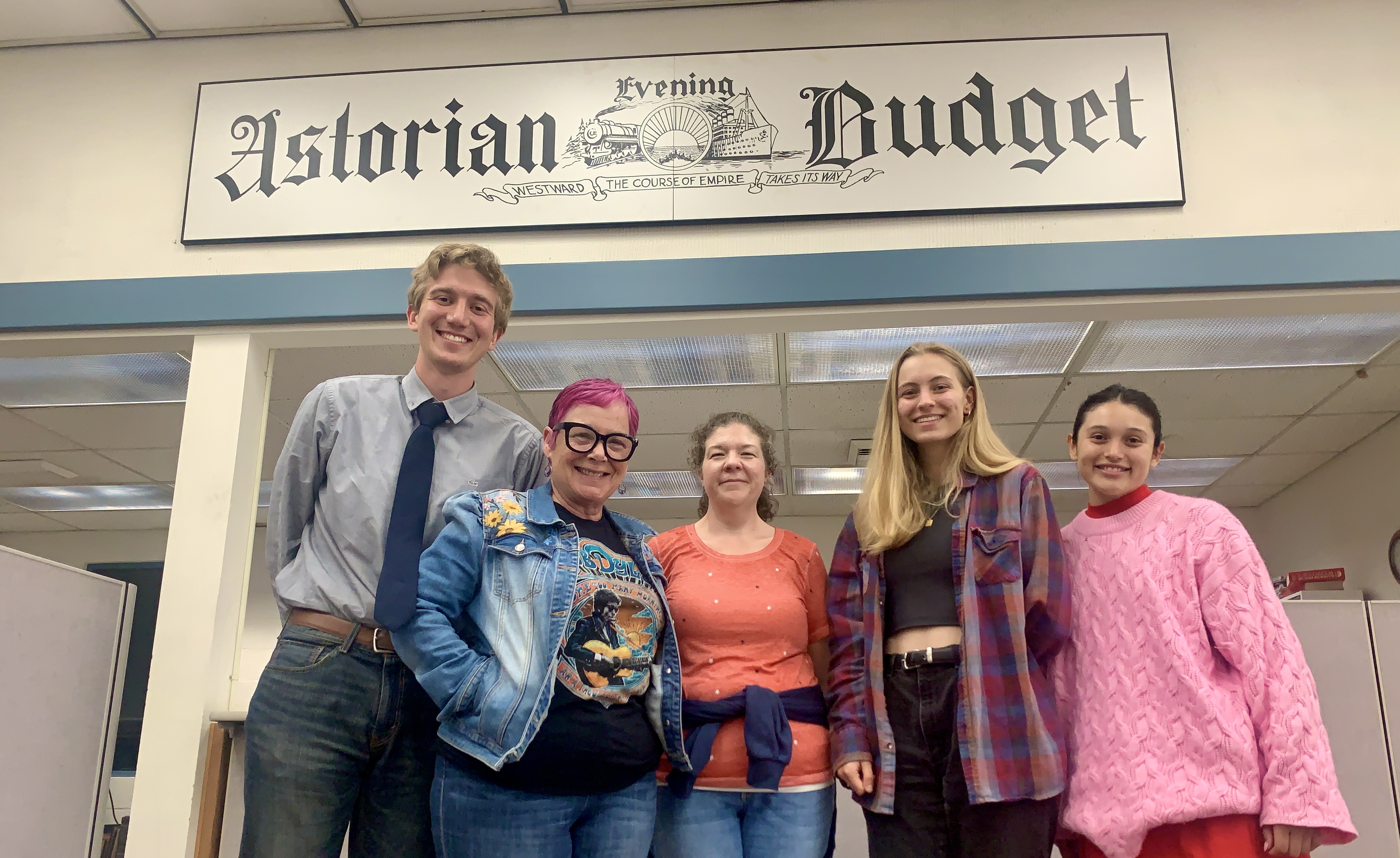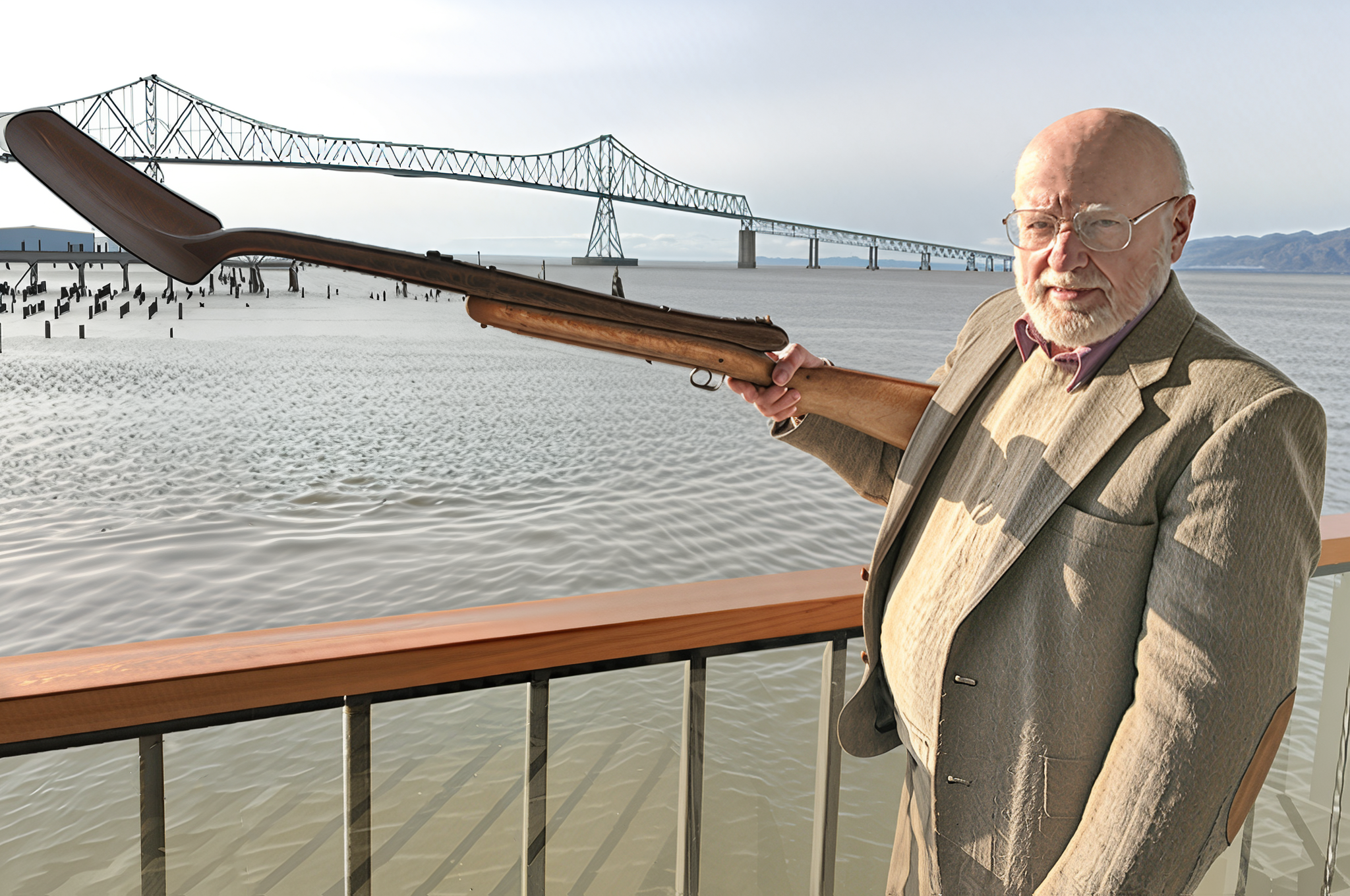A small bistro with a view of the harbor
Published 5:00 pm Tuesday, April 3, 2007
A small mound of creamy risotto rises like a rich yellow pillow from the center of a pure white porcelain bowl, while three lamb chops float in a sauce of rosemary and peppercorn jus. Both light up the gray landscape that waits on the winter-side of large view windows at the Port Bistro in Ilwaco, Wash., on a bitter stormy night.
Come in and meet Larry Piaskowy and Jennifer Williams.
Tasteful paintings and a bright copper countertop highlight the friendly space like a sculpted garnish on the wide-brimmed plates. An attentive woman with dusty-blond hair and warm blue eyes talks menu options to a table of happy customers and of a journey that led her and her partner, chef/owner Larry Piaskowy, to the rain center of the Pacific Northwest. This waitress, marketing guru, bookkeeper and co-owner is Jennifer Williams, and she took some convincing to move from the City by the Bay after her partner Piaskowy surfed up the Port Bistro on the Internet.
They flew into Portland under the heaviest rainfall either one of them had ever seen. Three days later, the rain had barely subsided, but they agreed through a preliminary handshake to take ownership of Pauly’s (later Port Bistro) from chef/owner, Jeff Markus, one of the favorites among Long Beach Peninsula’s culinary talents. Perhaps the couple heralded the ragged weather as an awesome spectacle, not as a dire omen. “We find beauty in these storms declares Williams. She is sharp, affable and tough, all necessary trademarks for the restaurant industry.
Grandmother was keyPiaskowy began his quest for owning his own restaurant three decades earlier while preparing pierogies (Polish dumplings) at his grandmother’s knee. His first job was in an Italian restaurant when he was 14. “They yelled at me because I couldn’t use a mop, but heck, at home we always did the floor on hands and knees.” A Polish/Irish hamlet on Chicago’s south side was his first and only home for better than half his life, which has now extended to 38 productive years. Williams is 33 and refers to herself as an “ethnic mutt.” She makes this declaration with a mischievous grin “Not more than an eighth of anything, but mostly Irish.” She smiles a lot.
Of average height with short-cropped black hair and goatee – his kind expression framed by designer glasses – Piaskowy is youthful in appearance. Don’t be hoodwinked by that: the gentleman has the training and experience of a dedicated and much older chef. He is not a man to complain about a staggering workload. Piaskowy is a motivated line-chef with quick, coordinated hands and a dedication deemed key for success in the competitive atmosphere of 110-degree kitchens.
He bounced around community college for a brief stint in his late teens. “I probably went to class about a dozen times that first term. The letter from the dean wasn’t very pretty.” In the meantime, he assisted his mother in the convalescence of his grandmother, cooking up a smorgasbord of treats daily that might have fed a company of hungry soldiers. Piaskowy enrolled in hotel management that next year, but he “kept walking past the cooking classes.” There is something akin to nostalgia now, as he ventures back to his past. “I liked the knives, the fire, the white starched aprons.” At 20, he switched to the Cooking and Hospitality Institute of Chicago.
Moving on and upBeginning at $6 an hour as a salad chef at 22, Piaskowy graduated into the 1,200-room Marriott Hotel on Michigan Avenue. In two weeks, he was making soups and sauces for the main kitchen, worked the buffet and banquet department as a very young prep chef and graduated to a fine Italian restaurant, I Tre Merli (three blackbirds) and began to find his own voice. A year or two later, Piaskowy was catering at a firm called, Food for Thought, then took yet another departure, this one at a small 40-seat restaurant called Chestnuts. Two years later he was back at Food for Thought, but a bit tired of the Illinois’ landscape.
Still scampering about professional kitchens, Piaskowy took a rare break and visited his sister in California’s Napa Valley. That did it. He loved the region, the wines and the opportunity to explore the Golden State’s innovative cuisine. No more freezing winters on Lake Michigan. Within the next two months he had an apartment in Oakland – he couldn’t afford San Francisco – and was catering for a small culinary firm called the Blue Heron. One night his boss insisted that he cook a dinner for a friend of his, Jennifer Williams, an ex-employee at the Blue Heron.
The couple skipped around, returning to San Francisco and soon Piaskowy was a chef at the Indigo Restaurant in the Financial District. Meanwhile Williams was marketing for the Developmental Studies Center helping publish textbooks. Together, they kept looking for a home and their own business, but even the most modest cost nearly $1 million. At 36, Piaskowy was ready to move on. That’s where Craig’s List came in. The couple talked about moving north. Williams couldn’t stop thinking about the small bistro with a view of the harbor. One evening she presented her beau with two tickets to the Pacific Northwest.
The couple wanted a bigger voice in a community. “Small seemed ideal. Participating in a community was big on our minds. We thought, ‘Let’s be a bigger part in a smaller community. Let’s help shape a village.'”
Food as artPiaskowy sees himself as a craftsman first, and as an artist second. He sees food as a craft with artistic elements. Watching the design of his food, the care and love with which he prepares it, it is hard to agree completely with his definition. That discussion seems lost in the backwaters of semantics. Piaskowy admits that “his cuisine has more artistic components than he once thought.” His thoughts drift to the famous restaurants in Napa Valley – The French Laundry, Tra Vigne, Mustard’s Grill, or dozens more – which he sees as defining the culinary movement. “We – the Port Bistro – are not on the fine-dining level of these (high-end) restaurants,” nor are the prices, “but we want the experience to be perfect from that first moment when our customers open the front door, from hello to goodbye.”
Back at the Port Bistro, darkness has fallen early over the harbor. Fishing boats bob on the quiet water behind the rock buttress that protects the sleepy port from the wildness awaiting seafarers at the mouth of the Columbia River. A splendid dinner is finished with three homemade fruit sorbets, a delicate glass of pear-scented desert wine from the Okanogan region of northeastern Washington and a plate of hand-crafted cheeses.









